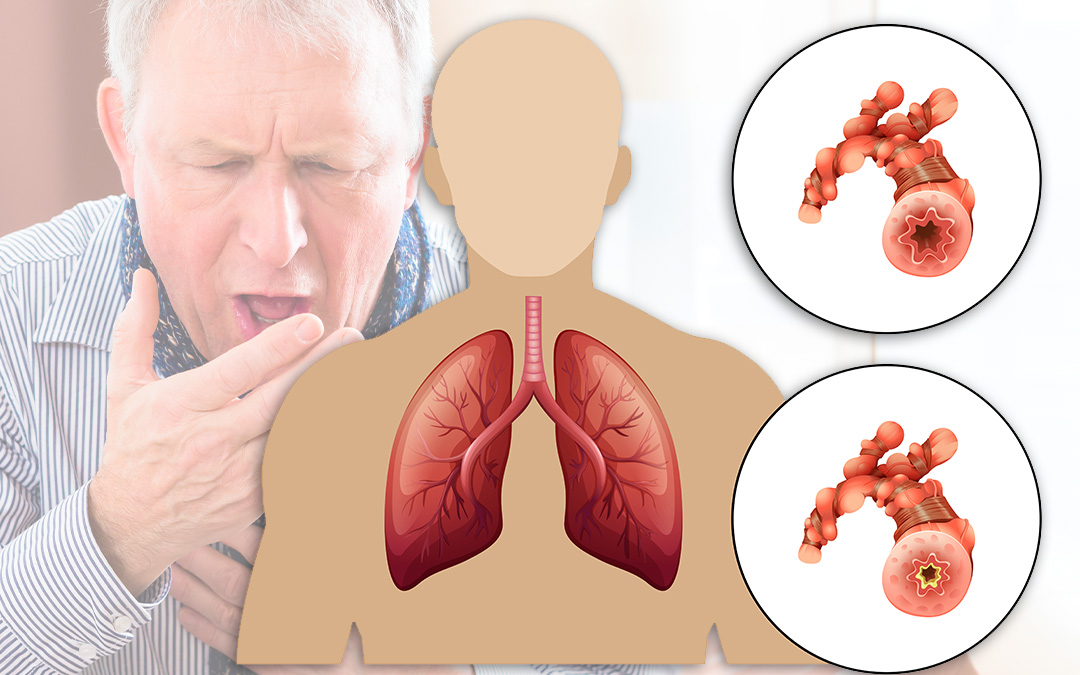Lifetime workplace exposure to pesticides is linked to a heightened risk of COPD, the umbrella term for a group of respiratory diseases that cause airflow blockage and breathing problems finds a large population-based study, published online in the journal Thorax.
The findings are independent of key risk factors for COPD (chronic obstructive pulmonary disease): smoking and asthma.
Workplace exposures are important preventable causes of COPD, with recent estimates indicating that around 14% of all such cases are related to work, say the researchers.
It can be challenging to pinpoint which jobs and exposure levels might have the most impact because of the need for studies to include sufficient numbers of participants, with full employment histories, and tracked over a sufficiently long period of time.
The researchers managed to get around these difficulties by drawing on data from the UK Biobank, a large population-based study of over half a million men and women recruited between 2006 and 2010 throughout the UK.
They invited a random sample of more than half a million 40–69 year olds from among NHS patients who lived within specified distances of 22 health assessment centres in the UK to take part in their study.
At entry to the UK Biobank, personal data, including age, sex, lifetime smoking history, current employment, and doctor-diagnosed asthma, were collected and measurements of physical health taken.
These measurements included spirometry, a lung function test that measures the amount and/or speed of air that can be breathed in and out in one forced breath.
Among the 502,649 participants who provided the full complement of personal data, 457,282 (91%) also took the spirometry test.
The lifetime job histories of these participants were collected and coded using OSCAR, a validated web-based tool, used to categorise paid employment for a minimum period of 6 months. And a job-exposure matrix was used to code three levels of exposure from 0 (none) to 1 (low) and 2 (high) to 10 categories of workplace agents.
These included biological dusts, mineral dusts, gases and fumes, herbicides, insecticides, fungicides, aromatic solvents, chlorinated solvents, other solvents, and metals—plus two composites of the above, to include all pesticides and vapours, gases, dusts, and fumes.
The final analysis was based on 94,514 people for whom full data, good quality lung function tests, and complete job and smoking histories were available.
Most participants had never smoked (55,574; 59%) and only a few were current smokers (5298; 5.5%). About 11% of participants had been diagnosed with asthma. The prevalence of COPD, identified by spirometry, was 8%, corresponding to 7603 cases.
Unsurprisingly, the prevalence of COPD was higher among current smokers (17%) than among former smokers (9%) and never smokers (7%).
Relatively few participants had been exposed to pesticides alone during the course of their work: just over 4% among those with COPD and 3.5% among those without. But nearly half of those with (48%) and without (47%) COPD had been exposed to a mixture of several agents.
Notably, most people had been exposed to only low levels of agents during their career.
After accounting for potentially influential factors, workplace exposure to pesticides at any point was associated with a 13% heightened risk of COPD, while high cumulative exposure (a combination of intensity and duration of exposure) was associated with a 32% heightened risk.
This was further confirmed after factoring in simultaneous exposure to other agents and in additional analyses restricted to those who had never been diagnosed with asthma and those who had never smoked.
And positive linear associations were observed for all índices of exposure (intensity, cumulative, and duration).
No significantly increased risk of COPD was observed for any of the other agents in the job exposure matrix, including dusts and metals.
This is an observational study, and as such can’t establish cause. And the researchers acknowledge that they didn’t have details of those who didn’t respond to their invite, which might have affected their results.
Nor were they able to pinpoint the effects of particular pesticides. But they nevertheless conclude: “In a large population-based study, occupational exposure to pesticides was associated with risk of COPD.
“Focused preventive strategies for workers exposed to pesticides can prevent the associated COPD burden.”

 Findings independent of asthma and smoking, large long term study shows
Findings independent of asthma and smoking, large long term study shows




















.jpeg)












